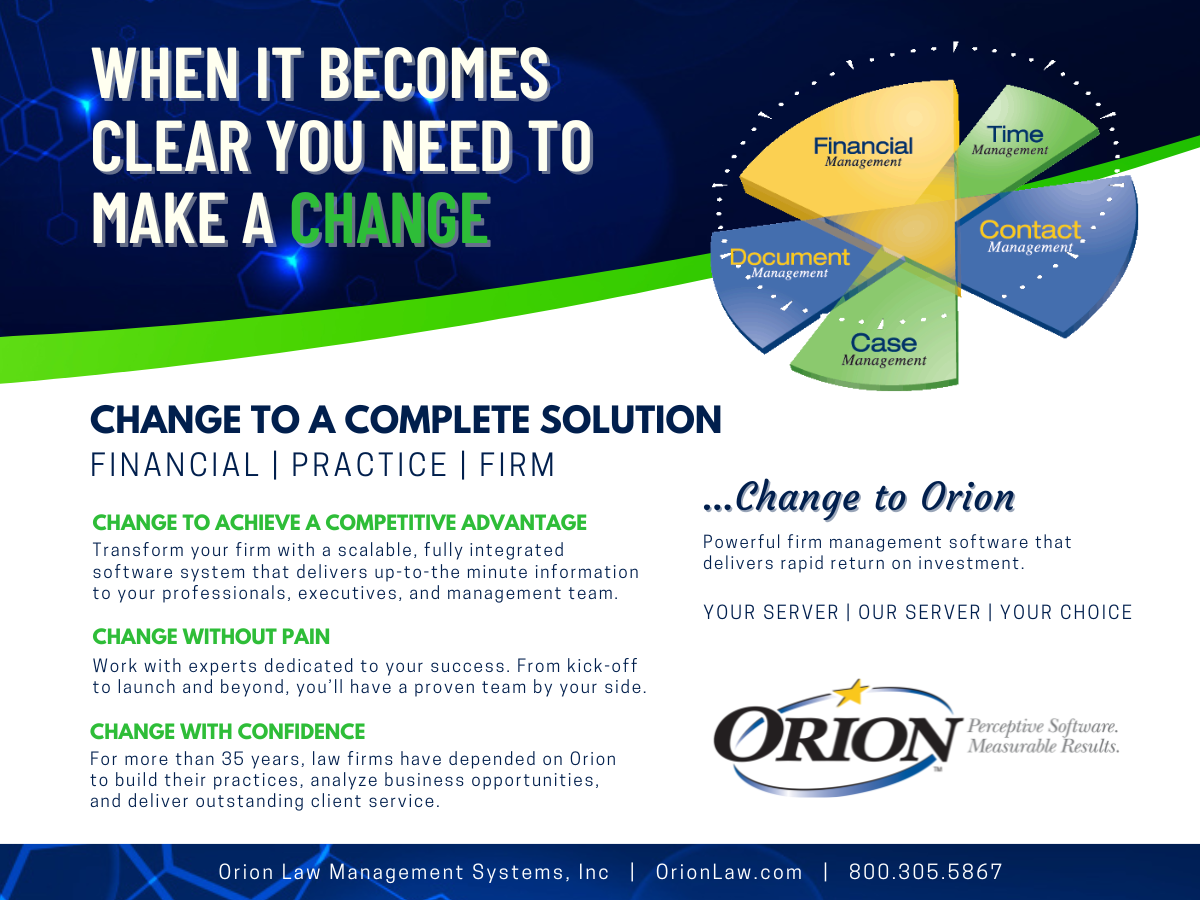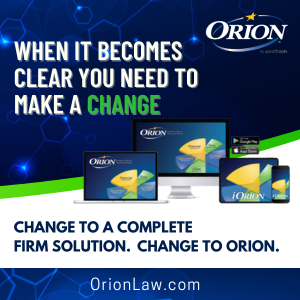Clients in any industry want to know that they are receiving the best effort from everyone who’s involved in providing the services they’ve purchased. They want as much clarity, consistency and certainty as possible. Those who manage the business side of legal firms, as well as firm administrators and lawyers, should be aware of the importance of communication, how it impacts clients and how it affects future business for the firm.
In law firms and success-driven companies in all industries where communication practices have been lacking, it’s time to focus on providing training for the internal staff and even for lawyers. Management and all individuals dealing with clients need to realize that limitations or lapses they have in communicating can be corrected, leading to a positive experience for their clients and a future filled with referrals for the firm.
CLIENTS DON’T EXPECT PERFECTION, BUT THEY DO EXPECT TRANSPARENCY
Clients in any industry — those who are reasonable, anyway — do not expect companies to get everything 100% correct 100% of the time. But they might find it unacceptable when they are led to believe something is headed in a positive direction and then are hit with an unwelcome surprise.
In that scenario, there was likely a communication gap — the firm failed to communicate for when the situation was changing, and/or the full scale of the problem wasn’t explained properly to the client. To bridge that gap, communicating consistently and with more transparency, clarity and detail could have better prepared the client for negative news and informed them of a solution.
Setting the client’s expectations from the outset of the relationship is critical. You’ve heard of the over-promise/under-deliver concept, and that’s where many companies get in trouble, with a failure to properly communicate exacerbating the problem. In my years in sales working with various clients, I have maintained one simple, consistent way in approaching these relationships: I am always transparent with my clients. I neither over-promise nor under-promise, telling them exactly what the challenges are and the potential solutions that can be reached.
“In my years in sales working with various clients, I have maintained one simple, consistent way in approaching these relationships: I am always transparent with my clients.”
This approach can be used to not only maintain and strengthen client relationships — even when problems arise — but to increase referrals. Clients whom you kept informed and provided solutions for are far more likely to refer your firm to friends and associates.
If I tell them I will have something back to them tomorrow morning, they fully expect it tomorrow morning. If it is going to take longer than I initially promised, I call them with an update long before they have a chance to reach out to me.
BE SOLUTION-FOCUSED
Remember this: A client is never interested in what you know about your business until they fully understand how much you care about them and their business. Communication practices like this will result in people choosing to work with you exclusively because of that approach to your business.
I always ask open-ended questions about what clients need so that I do not overlook something that could have been an easy fix had I asked the right question. Never expect a client to fully understand the internal workings of your organization. Instead, make sure what they are asking for is truly what they need to fix the problem they perceive that they have.
Trying to be an expert in everything and not fully making sure your client understands the solution only creates an additional barrier to success. They have no way of understanding how your solution helps them and is not just self-serving your organization's needs.
BE PROACTIVE
It is always better when dealing with clients to be proactive in the dissemination of information as opposed to reactive. If your client must contact you about a work product they are expecting from you, their first thought will be, “Why am I doing the follow-up? Is this not why I am paying your firm?”
Additionally, the client is wondering if the company really cares about them. When you place a client in this type of self-realization, it forces them to consider whether they picked the correct service provider for their needs.
The next time you receive a call from a client, you have two ways of approaching any potential solution they may be seeking from you. One possible conclusion they can draw is: “These people get me and what my needs are, and I am in good hands.” Or their thinking could go something like this: “Every time I call them, they seem to not be taking my business seriously, and if I need an update, it’s up to me to call them.”
The last thing you will hear from an unhappy client before they take their business elsewhere is, “I always have to call you.” Let’s make it our mission in this hectic world to ensure that conversation never happens.


